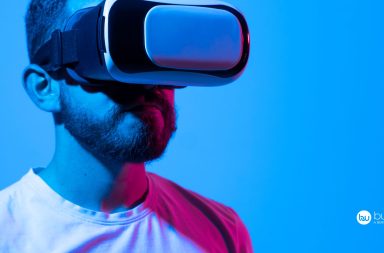This is one of the main conclusions of the report compiled by the Esade Institute for Healthcare Management, promoted and fostered by Barcelona Health Hub
Non-face-to-face care has been key to preventing the spread of COVID-19 in patients who have needed healthcare. This is one of the main conclusions of the report compiled by the Esade Institute for Healthcare Management, promoted and fostered by Barcelona Health Hub with the support of Community of Insurance as a strategic partner, and led by Esade Creapolis, regarding virtual health consultation and the benefits thereof for the healthcare system. In fact, the pandemic has accelerated its application within the public sphere and has brought the debate about both the limitations and the potential of telemedicine back to the table. Oscar García-Esquirol, VicePresident and Medical Director of Barcelona Health Hub, has highlighted the need “to consolidate this model of care in a manner that complements face-to-face care once the pandemic has been overcome”.
The study shows the speed with which the system adapted at the start of the health crisis, thanks to the rapid incorporation of virtual medical consultations. In this sense, more than 85% of hospital outpatient consultations in Catalonia during the month of April were performed by telephone or in a non-face-to-face capacity, and it is estimated that the pandemic has multiplied remote visits to primary healthcare centres by a factor of five.
Lack of Legal Certainty as the Main Barrier
“One of the main challenges to be addressed in the effective implementation of this healthcare modality lies in the development of tools and applications that ensure the confidentiality of data and that comply with the requirements of the Data Protection Regulations”, emphasised Manel Peiró, the director of the Esade Institute for Healthcare Management and co-author of the report.
According to the study, promoting the regulation of national telemedicine regulations would provide greater room for manoeuvre and acceptance of its services among its users, addressing issues such as the recognition of and accounting for clinical action, the accreditation of the professional-patient identity, as well as the liability for and the privacy, integrity and protection of data.
Proposals to Consolidate Virtual Health Consultation
In order to consolidate virtual health consultation, the Esade report proposes two lines of action on which to work in parallel, the regulatory and the organisational. Firstly, the regulatory axis would require the involvement of the different healthcare authorities (and other interested parties, such as scientific, patient and citizen organisations) to carry out the integration, changes and modifications to the current regulations, which will broaden the horizon and eliminate the barriers to the effective implementation thereof that currently exist.
“Key aspects to be resolved would be the expansion of the scope of the virtual consultation application; authentication of healthcare personnel and of patients with a robust, easy and accessible system; point-to-point encryption of information and registration in the medical record, as well as access to said medical record by the healthcare professional”, explained Joan Barrubés, the associate director of Esade’s Executive Master’s in Healthcare Organisation Management and co-author of the study.
Secondly, the organisational axis would involve making healthcare organisations, society and all the actors involved participate in the new healthcare modality, as well as the benefits that it would bring. In this sense, the study recommends the introduction of virtual medical consultation within the organisation and time management of healthcare teams and the adoption of healthcare information systems to record non-face-to-face medical sessions. It also considers it important to promote agreements between financiers and healthcare providers to adequately pay for this activity and to train professionals in the use of this type of consultation.



